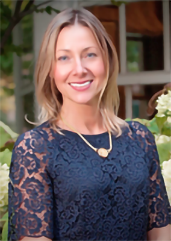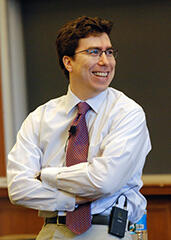Topics
- active learning (18)
- research assignments (6)
- libraries (1)
- literature-based learning (2)
- multimedia (5)
- museums (6)
- object learning (7)
- online learning (5)
- peer instruction (10)
- storytelling (2)
- learning management system (2)
- syllabus design (3)
- teaching empathy (3)
- teaching fellows (1)
- lecture (3)
- learning goals (8)
- assessment (6)
- data (3)
- backward design (3)
- blended approaches (12)
- case-based learning (8)
- classroom contracts (7)
- classrooms and space (3)
- collaborative learning (27)
- community events (1)
- course transformation (7)
- devices (3)
- learning by making (5)
- discussion (24)
- engaged scholarship (4)
- experiential learning (16)
- feedback (18)
- group work (8)
- guest speakers (7)
- interdisciplinary (6)
- leadership (3)
Send feedback
Subscribe
Copyright © 2024 The President and Fellows of Harvard College | Privacy | Accessibility | Digital Accessibility | Report Copyright Infringement

 Dr. Sang E. Park, Associate Professor of Restorative Dentistry and Biomaterials Sciences and Associate Dean for Dental Education, is committed to ensuring that dental education at Harvard School of Dental Medicine (HSDM) prepares students for careers as dental practitioners while meeting the needs of its patients. Dr. Park has been instrumental in several curriculum redesigns, including the introduction of the Case Completion clinical curriculum in 2009. The most recent efforts of the Curriculum Redesign Task Force for the class for 2027 included a restructuring of the preclinical and biomedical curriculum, a strengthening of research components, and engagement of the
Dr. Sang E. Park, Associate Professor of Restorative Dentistry and Biomaterials Sciences and Associate Dean for Dental Education, is committed to ensuring that dental education at Harvard School of Dental Medicine (HSDM) prepares students for careers as dental practitioners while meeting the needs of its patients. Dr. Park has been instrumental in several curriculum redesigns, including the introduction of the Case Completion clinical curriculum in 2009. The most recent efforts of the Curriculum Redesign Task Force for the class for 2027 included a restructuring of the preclinical and biomedical curriculum, a strengthening of research components, and engagement of the  Dr. Carmen Messerlian, Assistant Professor of Environmental Reproductive, Perinatal, and Pediatric Epidemiology, remodeled the department’s gateway
Dr. Carmen Messerlian, Assistant Professor of Environmental Reproductive, Perinatal, and Pediatric Epidemiology, remodeled the department’s gateway  Jonathan Zittrain, George Bemis Professor of International Law, adapted his digital governance course to incorporate what everyone was really focused on in mid-spring of 2020: the COVID-19 pandemic. Instead of “compartmentalizing” between class and crisis, he reworked the syllabus to respond to students’ needs and evolving experiences.
Jonathan Zittrain, George Bemis Professor of International Law, adapted his digital governance course to incorporate what everyone was really focused on in mid-spring of 2020: the COVID-19 pandemic. Instead of “compartmentalizing” between class and crisis, he reworked the syllabus to respond to students’ needs and evolving experiences.  L Mahadevan, Lola England de Valpine Professor of Applied Mathematics in SEAS, and Professor of Organismic and Evolutionary Biology, and of Physics in FAS used a 2017-2018
L Mahadevan, Lola England de Valpine Professor of Applied Mathematics in SEAS, and Professor of Organismic and Evolutionary Biology, and of Physics in FAS used a 2017-2018